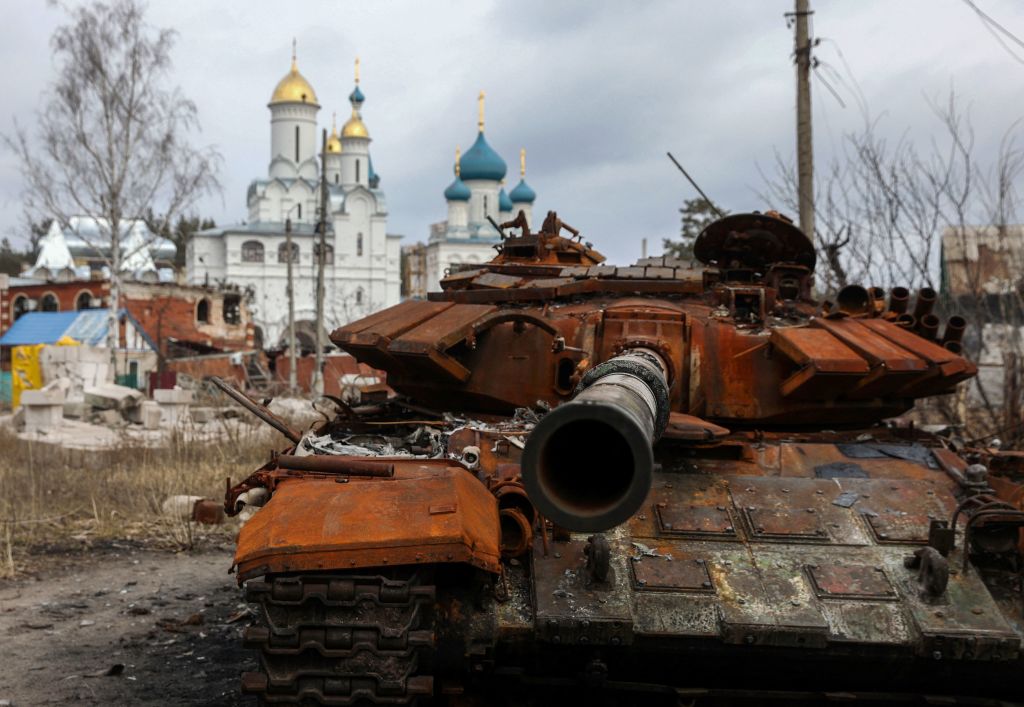ADF STAFF
As its battlefield losses mount in Ukraine, Russia is looking to Mali as a way to obtain weapons and circumvent international sanctions.
Since its invasion of Ukraine, Russia has lost more than 2,000 tanks — about two-thirds of its inventory — and 1,800 infantry fighting vehicles.
That is according to Oryx, a Dutch warfare research group, which reported that Russia has lost more than 5,000 pieces of equipment since the fighting began. Of those losses, almost 3,200 pieces of equipment were destroyed, and Ukraine captured another 1,400.
“This list only includes destroyed vehicles and equipment of which photo or videographic evidence is available,” Oryx stated in its report.
Now, the Wagner Group, a mercenary organization with close ties to the Russian government, is accused of trying to traffic weapons, such as drones, radar and counter-battery systems, from Mali for use in Ukraine. Yevgeny Prigozhin, head of the Wagner Group, has blamed Russia’s military for not giving the group enough weapons.
According to reports, Malian officials planned to obtain the arms from Turkey on behalf of Wagner. Wagner representatives would provide false documents for the transactions in order to obscure the origin and destination of the weapons.
Wagner fighters arrived in Mali in December 2021 under the pretense of offering security support against terrorist groups aligned with al-Qaida and the Islamic State and military training to Malian forces in exchange for money and gold mining rights.
At one point, there were at least 1,000 Wagner fighters in the country, although some may have been sent to fight in Ukraine. Since the mercenary group arrived in Mali, military experts have said terrorist groups have gotten stronger and expanded farther east.
As in other areas where it operates, the group is accused of war crimes in Mali, such as indiscriminate killings, summary executions, torture, theft and rape — sometimes alongside Malian government forces.
Overall, 71% of Wagner’s engagement in political violence in Mali has taken the form of attacks targeting civilians, according to the Armed Conflict Location & Event Data Project.
In January, human rights experts working for the United Nations called for an investigation of war crimes and crimes again humanity committed by the Wagner Group and Malian forces in several regions, where about 500 civilians were killed. The attacks include a massacre of villagers in the Mopti region last year.
“We are particularly disturbed by credible reports that over the course of several days in late March 2022, Malian armed forces accompanied by military personnel believed to belong to the Wagner Group, executed several hundred people, who had been rounded up in Moura, a village in central Mali,” the experts said in a statement.
Wagner’s activities aren’t simply violent. According to the Africa Center for Strategic Studies, at least 16 social media disinformation campaigns connected to the Wagner Group were detected and documented in Africa, including three or more in Mali. The narratives typically promote Russia as a fierce supporter of African nations and cast Western nations as the source of Africa’s challenges.
It’s another common Wagner tactic in Africa: Use fake news and disinformation campaigns to increase Russia’s footprint. Before Mali, the group notably used this strategy in the Central African Republic and Sudan, among other countries.

